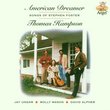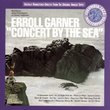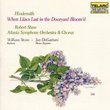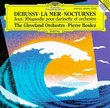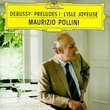| All Artists: Jehannot de l'Escurel, Guillaume de Machaut, Pierre des Molins, Manuscrit du Roi Anonymous, Franciscus Andrieu, Magister Grimace, Borlet (Trebol), Solage, Johannes de Meruco, Jehan Vaillant, Anthonello da Caserta, French Anonymous, Matteo da Perugia, Guillaume Dufay, Gilles de Bins dit Binchois, Early Music Consort of London Title: The Art of Courtly Love - David Munrow & The Early Music Consort of London Members Wishing: 1 Total Copies: 0 Label: Virgin Records Us Original Release Date: 1/1/1976 Re-Release Date: 7/16/1996 Genres: Dance & Electronic, Special Interest, Classical Styles: Opera & Classical Vocal, Ballets & Dances, Baroque Dance Suites, Chamber Music, Forms & Genres, Ballads, Rondos, Historical Periods, Baroque (c.1600-1750), Early Music Number of Discs: 2 SwapaCD Credits: 2 UPC: 724356128422 |
Search - Jehannot de l'Escurel, Guillaume de Machaut, Pierre des Molins :: The Art of Courtly Love - David Munrow & The Early Music Consort of London
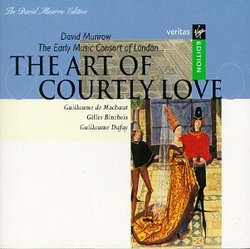 | Jehannot de l'Escurel, Guillaume de Machaut, Pierre des Molins The Art of Courtly Love - David Munrow & The Early Music Consort of London Genres: Dance & Electronic, Special Interest, Classical
|
Larger Image |
CD DetailsSimilarly Requested CDs |
CD ReviewsOne of the finest early music performances ever recorded S. Gustafson | New Albany, IN USA | 09/02/2001 (5 out of 5 stars) "And an intriguing work of scholarship besides. This was originally released back in the early 1970's by the late David Munrow as a three album box set.The first part of this recording is basically dedicated to Machaut and his contemporaries. The chanson -Amours me fait desirer- remains striking to this day, with its unusual leap in its first measures. -Amis tout dous- is a lovely miniature, and so also is the monophonic -Quant je sui mis au retour-. But the high point of this part of the record is -Quant j'ay l'espart-, a duet between countertenor and bass cornetto (a serpent?), understated and heartbreaking. The second part is weirdness from the Avignon court of the Popes, the time when rhythmic notation got more sophisticated, and composers grew more experimental. The unusual chromaticism of -Fumeux fume- is given a great performance here. The -Tre fontane- estampie is given a reading here that is truly frenzied. -Plasanche, ou tost- is a lovely song. You also get rhythmic oddities like -Le greygnour bien-. The third album nears Renaissance music, and focuses on Dufay and Binchois. Loud instruments like sackbuts and shawms are featured on pieces like -Donnes l'assault-, which seems risky, but sometimes works. The usually quiet pieces on the -La Spagna- ground are here given a marching-band performance on loud winds. The real high points here, though, are the motet -O tres piteulx-, Binchois absolutely gorgeous -Amoureux suy-, and the setting of Petrarch's -Vergine bella-. This is a definitive early music performance that should never be allowed to go out of print. My only complaint with the CD edition is that it lacks some of the more extensive notes that came with the phonograph record booklet." Entree to a marvelous sampling of Medieval music Steven A. Peterson | Hershey, PA (Born in Kewanee, IL) | 02/02/2008 (5 out of 5 stars) "This 2 CD set provides an entree to the secular music of Medieval France. I am certainly no expert in this period's music (Nor can I claim to be an expert in any period's music! I'm an interested amateur at best), but I am impressed by this selection of works from the time of Guillaume de Machaut [and some earlier music, too] to Guillaume Dufay. The CD covers music from 1300 to 1475, so one can see any evolution in French secular music over that period of time. The earliest piece is by Jehan de Lescurel, who died in 1304, called "A vous douce debonaire," or (in English), "To You Sweet Good-Natured One." Only three lines, accompanied by instruments of the time, producing a very different sound from what we are used to now. This provides a nice baseline against which to compare later music. Guillaume de Machaut was one of the greatest of the composers of this era. The liner notes do a good job of outlining his work and that of other composers of the time. My main complaint: at my age, the small lettering of the text can make it hard to read the rich material provided with the CDs! My favorite cut from the whole set is Machaut's "Douce dame jolie." There is a tenor, a chorus, a recorder, cornetts, rebecs, citole, and tabor (I'm not even sure of what that last set of instruments is about!). It is spirited and very enchanting, a catchy tune, as one might say. There is also something like a hypnotic quality to it. Even those who don't give a whit about Medieval music might find this worth a quick listen (it's only two minutes and twenty seconds long). Some of the lyrics (in English translation), to give a sense of the subject: "Fair and gentle lady, please believe, I beg of you, that none but you rule my heart." An example of "courtly love," as per the title of this 2 CD set. One of the examples of Guillaume Dufay's work is a spirited rondeau, "Ce moys de may." Dufay lived from 1400-1474, whereas de Machaut lived from 1300-1377, so, obviously, their music did not overlap. Dufay's piece features a countertenor, tenor, baritone, with instruments being recorder, citole, fiddle, and tambourines. Very sprightly and infectious. The Early Music Consort of London, conducted by David Munrow, do a fine job with the instrumental work, as do the singers. All in all, an interesting and worthwhile CD if one wish to get some exposure to Medieval secular French music. And I find it a lot of fun! " Outdated but Still Rivetingly Interesting Leslie Richford | Selsingen, Lower Saxony | 05/01/2005 (5 out of 5 stars) "This 2-CD boxed set is the digital version of a 3-LP box from 1973 and was reissued in 1996 as part of the edition with which EMI/Virgin celebrated the twentieth anniversary of David Munrow?s unfortunate demise. The recordings, made at London?s prestigious Abbey Road studios, are digitally remastered to a very high standard, so that I found myself enjoying them via headphones more than via loudspeakers, something which is pretty unusual with CDs from the old analogue days. The two discs contains no less than some 156 minutes (51 tracks) of absolutely fascinating music. The first part is devoted to Guillaume Machault?s songs, works which can be dated around 1350 to 1360. The second part of the programme is concerned with the so-called avantgarde from Avignon (including names such as Matteo da Perugia), composers who wrote for esoteric circles around 1380 to 1410. And the third part (the third LP of the original) is devoted to fifteenth-century music from the court of Burgundy, the two great composers here being Dufay and Binchois.
Of course, David Munrow?s performances, fascinating and rivetingly interesting as they are, were shaped by his own interests and research at the time, and the booklet notes point out that since then ?scholarship and performance practices have moved on healthily?, which I interpret to mean that today nobody would dream of performing this music the way Munrow did: for instance, he has most of the songs accompanied by a whole plethora of ancient instruments, although today it is generally agreed that works from this period should be sung unaccompanied or with minimal instrumental support. Munrow also performs some of the songs as purely instrumental pieces, a legitimate decision perhaps. Munrow also uses the two countertenors James Bowman and Charles Brett for many of the songs, and not everyone will appreciate being bombarded with their somewhat forced androgynous falsetto for nearly three hours; personally, it was the singing of Martyn Hill, tenor, and Geoffrey Shaw, baritone, which delighted my ear during these sessions. Along with the instruments, of course: slide trumpet, cornett, shawm, crwth, fiddle, rebec, citole and so on, plus several tracks with the amazing Christopher Hogwood playing an organ that sounds, at least, very old ? unfortunately, the otherwise good liner notes give no details concerning the instruments used. The Old French texts are printed in full with English translations, so it is possible to follow every nuance. Exceptionally good value for money! ? For more historically-informed performances of music of this kind, I suggest searching names such as Gothic Voices, Hilliard Ensemble or Binchois Consort. " |

 Track Listings (26) - Disc #1
Track Listings (26) - Disc #1